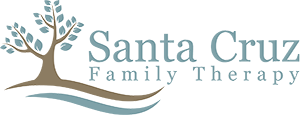It’s perfectly normal to occasionally feel sad or upset, or to be unhappy with situations in your life.
Feeling down is a normal reaction to life’s struggles, setbacks, and disappointments. However with depression, these feelings linger for weeks, months or even years and they are more intense than “just the blues”. It can engulf your day-to-day life, interfering with your ability to work, study, eat, sleep, and have fun.
Depression usually doesn’t get better on its own, and it may even get worse if left untreated. When depression starts to interfere with relationships, work and daily activities it is time to seek treatment.
Treating Depression
- Loneliness
- Lack of Social Support
- Recent stressful life experiences
- Family history of depression
- Marital or relationship problems
- Financial Strain
- Early Childhood Trauma or Abuse
- Alcohol or Drug Abuse
- Unemployment or underemployment
- Health Problems or Chronic Pain
Types of Depression
Depression is a form of what is known as a mood or affective, disorder, because it is primarily concerned with a change in mood. Depression is a very complex illness. No-one really knows for certain what causes depression, and everyone’s experience of depression is different.
Depressive disorders come in different types, just as is the case with other illnesses such as heart disease. When a psychiatrist makes a diagnosis of a patient’s depressive illness, he or she may use a number of terms — such as bipolar, clinical, endogenous, major, melancholic, seasonal affective or unipolar — to describe it. These labels confuse many people who don’t understand that they can overlap. People with depressive illness may also receive more than one diagnosis since the illness is often linked with other problems, such as alcoholism or other substance abuses, eating disorders, or anxiety disorders.
Depression can also be categorized in the following manner: 1) Depression that is originating from a bad or disturbing event in your life and 2) Depression which appears without apparent cause – the most common. The first type of depression is easier for you to tackle because the cause is known. The first step is to deal with the event that triggered your depression. It may have started as a result of a death, an accident, a divorce or any other type of setback. The second type of depression is more difficult to deal with as the source is unknown. It is the most common form of depression.
Getting proper help for different types of depression begins with a proper diagnosis. There are several different diagnoses for depression, mostly determined by the intensity of the symptoms, the duration of the symptoms, and the specific cause of the symptoms, if that is known.
